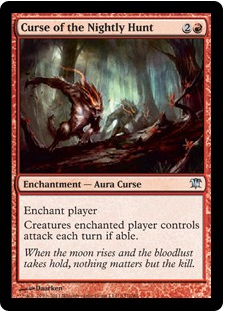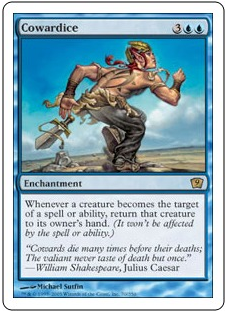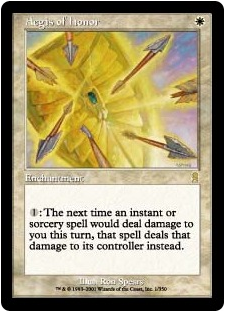
Ladyfrogs, Gentlebeans, it gives me great pleasure to introduce a further article in this series.
Today, we're studying Variations in Tactics, with the intention of using a combination of ancient strategy manual, critical literacy, and anecdotal evidence to improve our understanding of multiplayer.
In many ways, this article is about understanding the rules that have already been laid down and when it's a good idea to break them. It's also a study in how you can take a good strategy ("Don't attack unless it helps you") and make it a bad one ("Don't attack"),
whether through improper grasp of theory or some deep seated psychological issues. You know who you are.
In addition, I've decided to add another source to this incarnation of the series: http://suntzusaid.com/, bringing us a little closer to striking a balance between critical literacy and multiplayer theory.
I'll explain my reasons:
1) I've been pulled up on my lack of Chinese history by some people who knew more about it than I did. This is an example of adapting to metagame threats!
2) I have an outrageous desire to make this a classic of multiplayer theory. To do that, I need to show more respect for my source materials.
3) Maybe if I use even more references, the serious-minded portion of my audience will forgive me my love of pop culture references.
There's also some important news at the end of this article, so keep watching after the credits!
1. Sun Tzu said: In war, the general receives his commands from the sovereign, collects his army and concentrates his forces.
This is almost a straight repeat of the text of the first verse from Chapter 7: Maneuvering. Why is this?
Was Sun Tzu lazy? No.
Classics are not made because the author decided that 80% was good enough and skipped to publishing.
This Chapter is very short. Why?
We can see from my useful new reference, that scholars believe that this is intended as a companion to a future chapter entitled "The Nine Situations." This would mean that the chapter is complete, because it is intended to lead us more easily into Chapter 11.

"Oh gosh, this is due tomorrow.
Ah, I'll just copy-paste the introduction
and get back to raiding."
The last, and most romantic idea is that somewhere along the way, some verses were "lost." It's easy to believe that ancient Chinese mystics purposefully obscured their most potent pearls of wisdom, or that ham-fisted Englishman in the 19th century botched up the translations during the most important parts of the text. I know that translations often lose some of the lustre of the original text as part of the process, but I take issue with this notion that if we just believe hard enough, we'll find these lost verses in our back pockets and I'll have more text to work with. It's a waste of time to go through life saying "Man, as soon as we find the Q documents, a translation for the Voynich Manuscript, a map of Atlantis, the rest of Herodotus' written work, whatever Dan Brown was talking about in The Da Vinci Code, and Sun Tzu's lost stratagems, we'll be set!"
So, I believe its best that we assume that there rather than "nine" variations, there are in fact "infinite" variations that occur in any tactical game.
In Magic-speak, I say again to you: the important phases of Commander are as follows:
0) The pre-game, when the general receives commands from the sovereign. Build your deck around your Commander to achieve the greatest possible synergy.
1) The first phase, when you gather your army. In a textbook game, you lay down the groundwork that will fuel your powerful cards later on. This is the best possible time to cantrip, to search out lands, to tutor and to play walls.
2) The mid-game, when players concentrate their forces. This is the second phase of the game, when you do your best to avoid being the biggest fish in a small pond for fear of attracting too much attention; or being the littlest fish, in which case people will use you to get attack triggers from their Titans or bonuses from their lifelinking, counter-growing auto-attacking creatures.
Following this comes phase three, which consists of the most game-swinging plays possible in Magic.
2. When in difficult country, do not encamp. In country where high roads intersect, join hands with your allies. Do not linger in dangerously isolated positions. In hemmed-in situations, you must resort to stratagem. In desperate position, you must fight.
This verse implies several different positions you can find yourself in during a game. Respectively: when you're under threat of being attacked, when your movements are subject to scrutiny, when you're most or least powerful on the battlefield. Sun Tzu's responses are good policy: the worst thing you can do in a war is actually fight. Flores has echoed the same sentiment: Nobody blocks in Constructed. That's what losers do, while they're losing. For as long as you're able, disperse attacks by politicking or by spending your precious, precious removal. When you're blocking, it's generally because those options have been exhausted and you're now firmly on the defensive, playing by the rules your opponent has set for you.
So, when you're under threat of being attacked, don't cast a wall in preparation or hold on to some mana for an instant-speed removal, because those merely answer your opponent's threat. Play spells to get more mana, draw more cards, and, if at all possible, get the first hit in.
When you're trying to manoeuvre into a winning position, people will notice. It's impossible to convince sceptical players that you're Fabricating for Mycosynth Lattice for entirely peaceful purposes. Any tutor that forces you to reveal what you're searching up is bad news in multiplayer. Consequently, as long as you do still have allies, ask them to protect you as best they're able - be it by Wrathing the board or by taking out potential attackers before they connect with you.
3. There are roads which must not be followed, armies which must be not attacked, towns which must not be besieged, positions which must not be contested, commands of the sovereign which must not be obeyed.
A few months ago, I was playing Settlers of Catan with a group of friends. I don't know Settlers very well, but from writing this series I was riding high on the wave of generalised multiplayer knowledge. The "guy to beat" was a fellow by the name of Trip, which I discovered when he won the game fifteen minutes after this exchange:
"Hey," I said.
"Yeah?" said the guy, all placid and agreeable.
"Trade me some rocks. I'll give you three wood."
"Nah," he lazily reached for some chips.
"You should trade me some rocks, or I'll build roads to cut you off from that port you're headed to."
He turned his icy gaze to meet mine, and I could speak no more. During his next turn, he used the development card he'd been saving to monopolise the wood out of my hands, moved the robber to steal more cards off me, and used his largesse to neatly cut me off from where I was trying to go and build a new settlement.
Someone told me afterwards, "You just can't bully Trip."
Conclusion: You can bully people with the threat of future moves in just about any game, but should you really be doing it on a Sunday? You can build a Combo-Stax deck and annihilate your opposition, but should you bring it along to your mother-in-law's bridge club? The answer to both of these questions is "No." All strategies are contextual.
More gamefully, Sun Tzu's aid highlights the reading that you can't attack an opponent if it just opens you up to a Condemn. If you're planning to attack an opponent, what will you actually gain from your combat step? Will you gain absolutely crucial Sun Titan activations, or will you just be tapping creatures that could serve as a useful defence? Will you put yourself ahead in life points, or will someone be able to do the same to you?
4. The general who thoroughly understands the advantages that accompany variation of tactics knows how to handle his troops.
It's not by theory articles alone that you learn how to win at Commander. Practice deck-building. Mulligan when necessary. Practice politics. Most of all, improve your actual play skills. In Warcraft/Starcraft/Age of Empires/other lesser RTS's, you can know your build orders, you can know which units effectively counter your opponent's threats, but unless you have the reaction times and the ability to micromanage, you'll find that your wealthy and defenceless nation is overrun by throngs of well-handled barbarians in grimy loincloths. To be any good at Magic, you need to be able to make good play skills. I'd attempt to teach them here, but they require the kind of diagrams and curveballs that Zvi Mowshowitz employed in his heyday. So go read Zvi Mowshowitz.
5. The general who does not understand these, may be well acquainted with the configuration of the country, yet he will not be able to turn his knowledge to practical account.

My dad once told me that Croquet was
the most bloodthirsty sport in existence.
The traditional family game of bocce on
Christmas Day holds a place in my heart
as a very close second.
You can take that knowledge and use it, but you will lose at Bocce. Why? For one, there is every chance that you don't even know what Bocce is. Secondly, you lack the context necessary to make that knowledge work for you. I derived that scrap of information from playing against my family in our backyard. That particular grip was good because it reduced the effect that the uneven terrain would have had if the ball was given the opportunity to roll, and the relatively small confines of our yard meant that the loss of range wasn't a huge factor in selecting how to throw the ball. Also, there was a guinea pig cage in the way of Dad's shots. So, additional context: because it was a "family" game, we were playing very casually and not professionally. The terrain was a huge factor in making our throws. In a larger field, the throw we used would not be as useful. If you cling to a simple dogma of "make every throw with your hand on top of the ball, instead of normal under-arm throws," you will miss out on important opportunities. If you know that there is another way of making a throw, and that there is a time and place to use it, you have advanced in your understanding of Bocce. Even if you still don't know what the game actually is.
6. So, the student of war who is unversed in the art of war of varying his plans, even though he be acquainted with the Five Advantages, will fail to make the best use of his men.
You can still win off the back of reading every theory article written by the Ferrett, Anthony Alongi, and trawling through popular sites for tournament wisdom that is applicable to particularly cutthroat games of multiplayer. That said, nothing beats the quiet guy in the game store who spends his time doing nothing but playing games from opening time to the uncomfortable fifteen minutes after the official closing time. He couldn't explain how he makes his decisions, but he does so on the back of an unhealthy amount of practical experience. I salute him.
If you want to be better at Magic, play Magic constantly. Sun Tzu can't give you that advice in good conscience, but I can. Go to War, Forever. Play often, play hard, analyse your mistakes and then incorporate that learning into your next play session.
7. Hence in the wise leader's plans, considerations of advantage and of disadvantage will be blended together.
Recently, I read an article on "layered thinking." In one-on-one Magic, an individual progresses from "What can I do?" to "What can my opponent do?" to "What can I do about what my opponent has?" to "What can my opponent do about what I can do that he has?" to nonsensical labyrinthine sentence structure. In multiplayer Magic, one progresses from "What can I do?" to "What can each of my opponents do?" to "Where am I on everyone's threat tables?" to "Of all the bad things that could happen, what is most likely?"
You cannot derive practical advantage from layered thinking in multiplayer beyond intuition. Instead of asking, "Does A have removal?", "Does B have removal?", "Does C have removal?" and receiving three yes-or-no answers, you have to ask "Does A/B/C have removal?" and receive one yes-or-no answer.
8. If our expectation of advantage be tempered in this way, we may succeed in accomplishing the essential part of our schemes.
If we accept that not everything in this life goes according to plan, we've learned an essential life lesson. If we accept that not everything in Magic goes according to plan, we can respond the same way we do in life - we incorporate them into our plan and stock up on countermeasures.
9. If, on the other hand, in the midst of difficulties we are always ready to seize an advantage, we may extricate ourselves from misfortune.
I think this is already a fairly prevalent attitude in the gaming community. Jane McGonigal, author of Reality is Broken, uses the phrase "Super Empowered Hopeful Individuals" when referring to gamers. One of the core strengths of our demographic is that, when we're faced with adversity, we immediately assume that there is a way out, and begin looking to use it. So, in an adventure game, if we're locked in a room, we assume there is an escape. If the raid boss in WoW has an attack that kills everyone after fifteen minutes, we assume we'll just have to kill him in fourteen. If our guys have been annihilated in Magic, we assume we'll be able to draw into some new threats, or recur our old ones.
10. Reduce the hostile chiefs by inflicting damage on them; and make trouble for them, and keep them constantly engaged; hold out specious allurements, and make them rush to any given point.

I think a few of these could revolutionise
red decks in multiplayer. No joke.
In new-school RTS games like Starcraft II, the base-building and resource-management aspects of gameplay are downplayed in favour of emphasising strong micro-management - a player's ability to control a small handful of units with careful positioning and efficient use of skills is the order of the day. In Starcraft II, multiplayer matches are typically fast-paced, one-vs-one (sometimes two-vs-two, but never eight-player-free-for-all) affairs. In these contexts, 'harassment' is a very important strategy. Harassing requires an attack on an opponent's base with a hard-hitting or speedy unit with the intent of destroying their resource-gathering units. The logic is based on maths: every moment they spend gathering resources gives them more resources with which to build lasers and fire them at you. If you disrupt that growth, they have to resort to building more resource-gathering units, which costs the money and time that they would have used to build lasers.
Sadly, this is not as globally useful in multiplayer Magic (which is sometimes two-vs-two but very often 8-player-free-for-all). Early game harassment is limited because you have more players to disrupt. Those players will either have some sort of early game defences, reducing your ability to attack them, or have an aggressive creature on the board, limiting your ability to attack anyone. Continuing on - Sinkhole is the most mana-efficient land destruction ever printed, but although it might destroy one player's dual land, Maze of Ith or Cabal Coffers, it won't stop those other players from developing their resources.
I said previously that the idea of "never attacking unless it wins you the game" lacks nuance. How do we add this nuance? If you can use creatures that have offensive enter the battlefield effects, treat those as your disruption suite. If you have X spells that can be used for early game harassment or late game back-breaking, do so. If the majority of your opponents are bogged down in a war of attrition, disrupt the untouched players, but try not to get dragged into a separate war.
11. The art of war teaches us to rely not on the likelihood of the enemy's not coming, but on our own readiness to receive him; not on the chance of his not attacking, but rather on the fact that we have made our position unassailable.
In deck-building and in playing, you cannot rely on group hug cards like Howling Mine to keep everyone off your back. It might buy you a turn of continued existence, but you'll never hear anyone say out loud "Heads up! I am planning to attack you next turn, but it would be this turn if you didn't have something helping me!" Instead, you'll hear the words "I'm sorry." What are they sorry for? They'll turn some cardboard side ways, or hand the card over for you to read. That card will tell you that it is time. It's time for Mercutio to die, it's time for Falstaff to retire, for the Fool to walk off stage. There's a big, serious game of Magic about to be played, but the powers that be have decided that you're not invited. What are you to do?
You can trade that Howling Mine away. It's currently listed at $2 on magiccards.info. For $2, you can own a Terastodon, Royal Assassin, Acidic Slime AND a Stinkweed Imp AND still buy four cobblers. Amazing value!
(prices may vary over time)
12. There are five dangerous faults which may affect a general:
There are many faults that can affect a general - these are like the seven deadly sins. Other faults that you should keep an eye open for are people who treat rules lawyering as a valid playstyle, people who treat one color as much more deserving of play than another color, people who can only play in a certain way, people who have a love of backstabbing, people who are unable to break alliances to the point where they try to invoke an "allied victory." All of these things can be a valid way to approach Magic, but it is just as valid for someone to disagree with them.
a. Recklessness, which leads to destruction;
This is best captured in a player who makes a move "just to see something happen." There's a fine line between being willing to let your opponent smash into your flesh so that you can fracture his bones, or letting your opponent take your life in exchange for grazing their skin. In general, I believe it's a matter of intention.
A reckless opponent is a danger to themselves, but they are always a danger to you as well. The usual tricks - removal, rattlesnakes, spiders, the careful expenditure of mana - none of these work on a reckless opponent. Deflecting their attention from your board position to someone else's "unassailable" walls, bull-baiting, decisive blocking, and a matter-of-fact demeanour are effective counters. Never escalate the drama, never spend more than one card blunting their assault, never respond to them counting your life total. All of these things feed the primal rush they get from the short term ability to exert their will on the battlefield.
b. cowardice, which leads to capture;

When you take the instruction to sit back, watch the fracas, and mop up the mess in the end onboard, you win. When you take it too far, you become timid. In time, your dream deck consists of a perfect mana base, fifty-nine walls and Angus Mackenzie.
Cowardly players can't commit to offensive manoeuvres. They might agree to "ally" with you, but all this means is that if you outnumber the opponent ten-to-one on your own, that opponent is on 1 life, that opponent has no allies, and you have a Fog to save them from counter-attacks, they'll agree to make a feint with their Sakura-Tribe Elder right before they sacrifice him for a land. Threats that give a player inevitability won't work on a coward. Imagine you have a planeswalker that's one counter away from activating its ultimate ability. Where everyone else at the table might agree to gang up on you and try to steal a counter or two off you, a coward is more likely to just concede.
c. a hasty temper, which can be provoked by insults;
A hasty temper is easily taken advantage of – "Oh wow. A Darksteel Plate. That's going to ruin Todd." "Haha, double Forest means next turn, Todd gets Terastodon'd." "Geez, Todd, it's a shame Clarissa's going to wreck you with that Karn next turn. You were almost doing well for a while there." If you feel your blood boiling at any time – don't let it! That is not a normal thing for blood to do.
d. a delicacy of honor which is sensitive to shame;
(Remember, as always- this is not a guide to how to maintain a perfectly harmonious balance of power in a playgroup.)

But let's talk about the kind of delicate honour that can be a concern in playgroups. If you've made a big deal of the fact that you always play with honor and don't include "unfun" cards, you're ignoring the sad fact that for most people, unfun is anything that stops me from efficiently killing you.
Don't like counterspells? It's tacit permission to combo out.
Don't make use of combos? It's permission to imprison you.
Don't allow prison decks at your table? A clear road to Natural Order into Progenitus.
Don't want to let people skirt mana costs? Mass Land Destruction becomes capable of wrecking everyone's board.
Don't want Mass Land Destruction to resolve? I guess you'll need counterspells for that.
When you're overtaken by a need to be seen as honourable, you're vulnerable to excessive behaviours: first and foremost, you give your opponents an opportunity to shape your deck for you. It's a free Cranial Extraction at the start of each game. Secondly, you're ridding yourself of your ability to learn more about the wider structure of Magic, in which individual cards are unbalanced, but the generalised strategies are sound.
e. over-solicitude for his men, which exposes him to worry and trouble.
Bruce Lee left with us this saying -
"Forget about winning and losing; forget about pride and pain.
Let your opponent graze your skin and you smash into his flesh;
let him smash into your flesh and you fracture his bones;
let him fracture your bones and you take his life.
Do not be concerned with escaping safely — lay your life before him."
If you are too afraid to take your enemy's life lest he graze your skin in return, you'll be so paralysed by the fear of losing a valuable resource that you won't be able to avoid losing the entirety of the game. Your life points, your cards in hand, your favourite monster, your lovingly-sculpted graveyard - all of these must be expendable. If you can't afford to lose any of these things, then you should find a way to spend it before it's taken away from you.
13. These are the five besetting sins of a general, ruinous to the conduct of war.
If you sometimes attack without counting untapped lands, worrying about combat math or even trying to divine what the outcome will be, you are in the thrall of recklessness.
I believe that cowardice comes from being unwilling to accept that creatures will trade in combat, or that removal can and will be turned on a successful player. If you find yourself believing that everyone else's cards are better than yours, or you believe that if you make a single aggressive move you'll be dogpiled into oblivion, you suffer from cowardice. Build a deck made out of aggressive creatures. Look for haste, trample, and double-strike. Play an attack-left format. Taste the sweet sting of defeat, and be at peace with it.
If you feel the heat rising in your gut every time you're attacked, see a doctor. Then, in addition to your new blood pressure medication, start doing lots of deep breathing exercises. Ask yourself, "Why am I taking this game personally?" Ask yourself, "Why is that person bringing up Clarissa, after all this time?"
If you find yourself using the word "honour" once or twice a game, delete that word from your vocabulary.
14. When an army is overthrown and its leader slain, the cause will surely be found among these five dangerous faults. Let them be a subject of meditation.
If you recognise these traits in other people, take advantage of them and point them out if asked.
If you recognise these traits in yourself, do something!
That's all from me for now, chums. The next article in this series is Chapter 9, "The Army on the March." Its sure to contain all sorts of practical play experiences and will be posted as soon as its done (... in February, 2028).
On a more personal note, you may have noticed that this article took a very long time to complete, even given my usual update schedule. There is a very joyful reason for this: I have just completed my university degree! No longer are you reading the writings of a game nerd. You're now reading the writings of a man who has a Bachelor of Game Design and Interactive Entertainment!
How does one achieve such a lofty title? One makes video games with a team of other very talented people! As a result, I've spent the last few months pouring all my efforts into our final year project, Awien Ambush. It's a cute little tower defence game, in which you're a young boy defending his house from aliens. We totally won an award for it, from Halfbrick Studios. You might have heard of their game, Fruit Ninja? Yeah. We're totally besties now. My team and I will keep working on it until its ready for a full release, and I'll ideally be able to keep you updated in the new year.
Comments